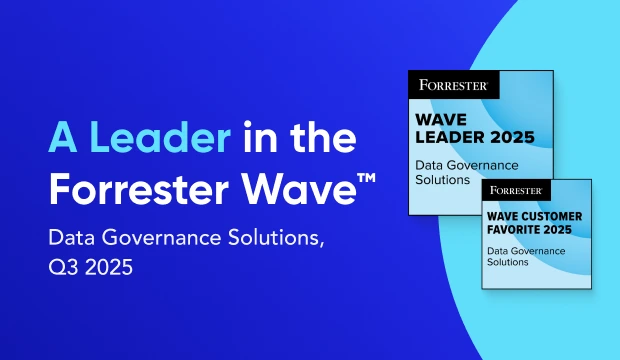Data Ticket Takers vs. Decision Makers: Why Do They Matter in 2024?

Share this article
Data ticket takers are responsible for accurately collecting, recording, and managing data, ensuring its integrity and reliability. Their role is primarily administrative, focused on maintaining data quality.
In contrast, decision makers utilize data insights to make strategic choices that shape an organization’s direction. They proactively seek information, analyze trends, manage risks, allocate resources, and foster innovation, playing a pivotal role in achieving organizational goals.
Understanding the difference between data ticket takers and decision makers is fundamental in the realms of business and data analytics. These two roles, while intertwined, have distinct responsibilities and functions. In this article, we’ll dive deep into understanding the nuances of both and how they contribute to the bigger picture.
Table of contents #
- What are data ticket takers?
- What are decision makers?
- How are they related?
- Roles and responsibilities of data ticket takers
- Roles and responsibilities of decision makers
- How are they beneficial to organizations?
- Recap
- Related reads
What are data ticket takers? #
Data ticket takers are individuals or systems that collect, record, or handle data based on specific instructions or protocols. Their role is generally administrative in nature, and they are concerned primarily with ensuring that data is accurately captured, processed, and stored.
And the following are the fundamental characteristics of data ticket takers:
- Reactivity: They typically respond to requests rather than proactively analyzing or interpreting data.
- Accuracy-driven: Their primary goal is to make sure that data is logged correctly.
- Routine tasks: Their responsibilities tend to be repetitive and follow a set protocol.
What are decision makers? #
Decision makers are individuals, groups, or systems that use data and insights to make strategic decisions. Their responsibilities go beyond merely collecting data; they analyze, interpret, and act upon it.
And the following are the fundamental characteristics of decision makers:
- Proactivity: They actively seek data and insights to drive decisions.
- Strategic thinkers: They look at the bigger picture and consider long-term implications.
- Analytical: They don’t just rely on data; they interrogate it, look for patterns, and draw conclusions.
- Risk-takers: Decision making often involves taking calculated risks based on data-driven insights.
Data ticket takers and decision makers: How are they related? #
While it might seem like data ticket takers and decision makers are worlds apart, they are actually interconnected pieces of the same puzzle.
Decision makers rely on the accurate data provided by ticket takers to make informed decisions. On the other hand, ticket takers might adapt their data collection methods based on feedback from decision makers.
Collaboration is key, but why? #
The best outcomes often arise when there is a seamless collaboration between these two roles. Decision makers need to communicate their data needs effectively, and ticket takers must ensure they provide accurate and timely data.
In short, understanding the distinction and synergy between data ticket takers and decision makers can help optimize processes, ensure accurate data handling, and lead to more informed strategic decisions.
5 Key roles and responsibilities of data ticket takers #
Data ticket takers play a pivotal role in the initial stages of the data journey. They ensure that raw data is accurately collected, processed, and stored for further use. Let’s delve deeper into the specific roles and responsibilities of these crucial players in the data world.
The primary role of data ticket takers #
At the core, data ticket takers serve as the gatekeepers of raw data. They are responsible for ensuring that data flows into the system accurately and is maintained appropriately, laying the foundation for further analytics and decision-making processes.
Let’s take a quick look at the key responsibilities of data ticket takers.
1. Data collection #
- Source verification: Before collecting data, they need to confirm the legitimacy and reliability of the source.
- Accurate recording: They ensure that every piece of data is accurately recorded without any distortions or omissions.
- Timely data entry: They are responsible for timely input of data to ensure that databases are always up-to-date.
2. Data validation #
- Consistency checks: Data ticket takers often need to check the consistency of the data they gather to ensure there are no discrepancies.
- Error identification: They are tasked with identifying any potential errors or inconsistencies within the data.
- Corrections: If any errors are found, data ticket takers are responsible for either correcting them or flagging them for further investigation.
3. Data storage and management #
- Storage: They ensure data is securely stored in the appropriate databases or systems.
- Backup and recovery: They may be involved in creating backups of the data and ensuring that there are recovery mechanisms in place.
- Data categorization: Often, they need to categorize or tag data appropriately for easier retrieval in the future.
4. Data security #
- Access controls: Data ticket takers might be tasked with setting up or adhering to access controls to ensure data confidentiality.
- Data encryption: Ensuring that sensitive data is encrypted and protected from unauthorized access can be a part of their responsibilities.
- Regular updates: They might be involved in updating security protocols or software to protect data from breaches.
5. Communication and collaboration #
- Feedback loop: They need to maintain open channels of communication with analysts and decision makers to understand data needs better and adapt their processes accordingly.
- Training: They might be responsible for training new members in data collection and management protocols.
- Documentation: Creating and maintaining documentation about data sources, collection methods, and storage protocols is often essential.
The evolving role of data ticket takers #
With the advancements in technology and automation, the role of data ticket takers is continually evolving. They are now more integrated into analytics processes and often work closely with data scientists and analysts. This integration ensures that there’s a seamless flow of accurate and timely data for the organization’s decision-making needs.
In conclusion, data ticket takers are the unsung heroes of the data world. Their meticulous attention to detail and dedication lay the groundwork for all subsequent data-driven processes and decisions.
5 Key roles and responsibilities of decision makers #
Decision makers sit at a strategic juncture in organizations, responsible for interpreting data and insights and determining the best courses of action. Their decisions often have wide-reaching impacts on an organization’s direction, success, and longevity. Let’s explore their roles and responsibilities in depth.
The primary role of decision makers #
At their essence, decision makers are tasked with making choices that drive an organization’s mission, vision, and objectives forward. Whether these decisions are related to finances, operations, marketing, or any other domain, they shape the company’s trajectory.
Let’s take a quick look at the key responsibilities of decision makers.
1. Data interpretation and analysis #
- Analyzing trends: Decision makers review data and identify patterns, trends, and anomalies to inform their choices.
- Collaboration with analysts: They often work closely with data analysts and scientists to ensure they have a comprehensive understanding of the data at hand.
- Critical thinking: They must be adept at critically evaluating the data and insights presented to them, questioning assumptions and methodologies where necessary.
2. Strategy development #
- Vision alignment: Decisions made should always align with the organization’s broader vision and goals.
- Setting objectives: They set short-term and long-term objectives based on data-driven insights.
- Risk assessment: Decision makers need to weigh potential risks against rewards, ensuring that the organization remains resilient.
3. Resource allocation #
- Budgeting: They decide where to allocate financial resources, prioritizing projects or departments based on anticipated ROI.
- Manpower distribution: Deciding which teams or projects get more personnel or specific expertise falls under their purview.
- Tool and technology adoption: They determine which tools, technologies, or methodologies the organization should adopt to achieve its goals.
4. Communication and leadership #
- Team direction: Decision makers provide direction to teams, guiding them towards organizational objectives.
- Stakeholder communication: They often communicate with shareholders, board members, and other key stakeholders, explaining their decisions and garnering support.
- Conflict resolution: When disagreements or uncertainties arise, decision makers step in to provide clarity and direction.
5. Continuous learning and adaptability #
- Market awareness: Decision makers must remain updated about market trends, competitor movements, and industry shifts.
- Feedback reception: They should be open to feedback from subordinates, peers, and stakeholders, using it to refine future decisions.
- Self-improvement: As leaders, they should be committed to continuous learning, attending workshops, trainings, or courses to enhance their decision-making skills.
The challenges faced by decision makers #
The weight of responsibility on decision makers is immense. They often operate in environments of uncertainty, with incomplete information. Navigating this complexity requires a combination of intuition, experience, and data-driven insights. Mistakes are inevitable, but a robust decision-making process helps mitigate potential negative consequences.
In conclusion, decision makers are instrumental in shaping the destiny of organizations. Their roles, intricate and multifaceted, require a delicate balance of analytical prowess, visionary thinking, and strong leadership capabilities.
Data ticket takers and decision makers: How are they beneficial to organizations? #
Data ticket takers and decision makers play crucial roles within organizations, each contributing uniquely to its functioning and success. While their responsibilities may seem distinct, their combined contributions form a synergistic relationship that brings manifold benefits to the enterprise. Let’s explore how these roles positively impact organizations.
4 Core benefits of data ticket takers #
In today’s data-driven landscape, the role of data ticket takers has emerged as crucial for organizations seeking to maximize the potential of their data assets. These professionals offer a range of benefits that contribute to the overall efficiency and reliability of an organization’s data ecosystem. Here are four core advantages of having data ticket takers in place:
1. Ensures data accuracy and integrity #
At the heart of any data-driven operation lies the need for accurate and reliable data. Data ticket takers play a pivotal role in establishing foundational trust in an organization’s datasets.
By meticulously scrutinizing and recording each data point, these experts ensure that the data being collected and inputted is free from errors and discrepancies. This accuracy forms the basis for informed decision-making, robust analysis, and effective strategy development.
2. Facilitates operational efficiency #
The processes involved in managing and utilizing data can often become convoluted and time-consuming. Data ticket takers bring a sense of streamlined efficiency to these processes.
Through their specialized training, they handle tasks like data entry and validation with precision and speed. This efficiency not only saves valuable time but also minimizes the likelihood of errors that could stem from manual data handling.
3. Enhances data security #
The increasing concern surrounding data breaches and security vulnerabilities highlights the importance of safeguarding sensitive information. Data ticket takers often take on the responsibility of ensuring that data storage and handling adhere to stringent security standards.
This proactive approach helps protect the organization from potential breaches and unauthorized access, instilling confidence among stakeholders regarding data privacy.
4. Supports informed decision-making #
In the age of data-driven decision-making, the quality of the data being used is paramount. The data that data ticket takers curate and validate serves as a valuable resource for analysts and decision makers alike.
This trustworthy data foundation empowers decision makers to make well-informed choices, as they can rely on the accuracy and relevance of the information at hand.
In essence, the role of data ticket takers extends far beyond routine data management. Their contributions ripple across the organization, fostering accuracy, efficiency, security, and ultimately enabling better decision-making processes. As organizations continue to harness the power of data, the significance of data ticket takers in maintaining data quality and integrity becomes increasingly evident.
4 Core benefits of decision makers #
Effective decision makers play a pivotal role in shaping the success and direction of organizations. Their strategic thinking, analytical prowess, and leadership capabilities contribute to a range of critical advantages that propel organizations forward.
1. Drives organizational strategy #
At the heart of decision makers’ responsibilities lies the task of setting organizational direction. By aligning choices with overarching goals and objectives, decision makers chart the course that the organization will follow.
This strategic vision not only guides day-to-day operations but also ensures that every action taken contributes to the realization of long-term ambitions.
2. Optimizes resource allocation #
The art of allocating resources efficiently is mastered by decision makers. Whether it’s investing time, money, or manpower, they make well-informed choices that yield the greatest return on investment.
By intelligently distributing resources, decision makers maximize productivity, enhance operational effectiveness, and ultimately enhance the organization’s bottom line.
3. Mitigates risks #
Risk is an inherent aspect of any decision-making process. Skilled decision makers, armed with data-driven insights, meticulously assess potential risks before making choices.
This calculated approach helps shield the organization from avoidable pitfalls, minimizing negative impacts and safeguarding its reputation and financial stability.
4. Fosters innovation and growth #
In the ever-evolving landscape of business, decision makers act as catalysts for innovation and growth. By staying attuned to market trends and shifts, they can swiftly adapt organizational strategies.
This adaptability not only leads to innovative solutions but also positions the organization to seize new opportunities, drive market penetration, and fuel sustained growth.
In essence, decision makers are the navigators who steer organizations through complexity and uncertainty. Their ability to strategically direct resources, manage risks, and drive innovation makes them indispensable drivers of organizational success.
Synergistic benefits of data ticket takers and decision makers #
1. Comprehensive data-to-decision pipeline #
Seamless flow: With data ticket takers ensuring accurate data collection and decision makers analyzing this data, organizations benefit from a streamlined flow from raw data to actionable insights.
2. Increased confidence in choices #
Data-backed decisions: Decision makers can have more confidence in their choices, knowing that the data they’re basing their decisions on has been meticulously handled and validated by data ticket takers.
3. Enhanced organizational agility #
Responsive maneuvers: With accurate data at their disposal, decision makers can respond quickly to market changes, ensuring the organization remains competitive and agile.
In a nutshell, data ticket takers and decision makers, through their distinct yet interconnected roles, significantly enhance an organization’s capacity to navigate complex business landscapes. Their combined efforts ensure that companies not only have reliable data at their fingertips but also the strategic prowess to leverage this data effectively.
Recap: What have we learnt so far? #
- In the intricate world of modern business and data analytics, the distinction between data ticket takers and decision makers holds immense significance. These distinct roles, while separate in their functions, converge to form a harmonious partnership that drives organizational success.
- Data ticket takers ensure the accuracy, integrity, and security of an organization’s data. Through their careful collection, validation, and management efforts, they lay the foundation for informed decision-making. Their role evolves as technology advances, integrating them more deeply into data-driven processes.
- Decision makers utilize data insights to make informed choices that shape an organization’s trajectory. By interpreting trends, managing risks, optimizing resources, and fostering innovation, they guide the organization toward growth and resilience. The challenges they face highlight the complexity of their roles and the critical importance of their decisions.
- Synergy in Action: Collaboration between data ticket takers and decision makers is paramount. Effective communication ensures accurate data is available for strategic decisions. Decision makers rely on meticulously curated data to drive choices, while ticket takers adapt their practices based on decision maker feedback.
- Bottom line: These roles, though distinct, contribute harmoniously to the greater data-to-decision journey. By embracing their unique contributions, organizations can optimize processes, harness the power of data, and make informed strategic choices that shape their futures.
Data ticket takers & decision makers: Related reads #
- Modern Data Team 101: A Roster of Diverse Talent
- Data Anomaly & Quality Monitoring: Impact & Roadmap
- Data Quality Explained: Causes, Detection, and Fixes
- Modern data culture: The open secret to great data teams
- What is modern data stack: History, components, platforms, and the future
- What is a modern data platform: Components, capabilities, and tools
- Modern data catalogs: 5 essential features and evaluation guide
Share this article











